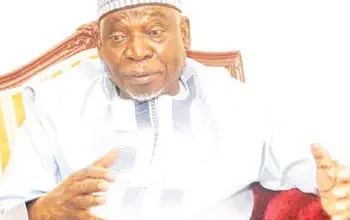‘Transformation In People’s Lives Through Public Digital Platforms: The Nigerian Experience’ At the 9th G20 Parliamentary Speakers’ summit (P20) In New Delhi, India 13TH – 14TH October 2023 – DSP

Distinguished Speakers, we are all aware that almost all aspects of our lives, such as communication, transportation, education, health, politics and the financial system, are being impacted by digital technologies. The influence of public digital platforms on reshaping societies is undeniable.
A lot of these changes are stronger in the developed world. But developing countries like Nigeria are also not left out.
According to the United Nations, digital technologies have reached more than 50% of the people in developing countries, representing the fastest diffusion of innovation in human history.
I am proud to tell you that Nigeria is one of those countries in the developing world where digital platforms are transforming people’s lives.
With a population of 223 million people, Nigeria has an internet penetration rate of about 55%. This means that about 123 million Nigerians have access to the internet, mostly through their smartphones.
Nigeria has diligently invested in digital infrastructure, established robust cyber security frameworks, and implemented digital identity systems.
- Enhancement of Connectivity Through Digital Platforms
Nigerians are also among the most active people on the internet, particularly on social media.
Statistics have shown that there are about 32 million active social media users in the country, in addition to the millions of Nigerians in the diaspora.
Social media platforms are widely used to discuss various issues, share information and connect people at various locations. Thus, social media platforms are helping to connect people in an unprecedented manner.
- Government and Public Services’ Digital Transformations Digital platforms are also extensively deployed in the areas of democratic governance and political accountability by the government, the media and the civil society organizations. From 2015 to date, the federal government has deployed e-government platforms like the Treasury Single Account (TSA), Integrated Personnel and Payment Information System (IPPIS), Government Integrated Financial Management Information System (GIFMIS) and Bank Verification Number (BVN), among others. In addition, civil society organizations like BudgIT, Dataphyte, and the Centre for Democracy and Development (CDD) use digital platforms of various kinds to monitor and track government budgeting and procurement processes.
The government is also working with agencies and civil society organizations towards fully embracing the global Open Government Partnership initiative.
All of these are helping in transforming Nigeria’s governance system to be more accountable and transparent, etc., therefore bringing a significant reduction in the mismanagement of resources.
- Business and E-commerce Advancements The impact of public digital platforms on business and e-commerce in Nigeria is astonishing. Online marketplaces have increased, providing businesses with new avenues for growth. Secured digital payment systems have empowered entrepreneurs and consumers, fostering economic growth and increasing convenience.
- Educational Transformation
Public digital platforms have brought about a near educational revolution in Nigeria. The integration of technology in classrooms, e-learning platforms and digital content delivery has dramatically expanded educational access. These platforms are bridging educational disparities and are ensuring learning opportunities for a wider demographic.
- Healthcare Development
The impact of public digital platforms on healthcare in Nigeria is equally remarkable. Electronic health records and health-focused mobile applications are gradually transforming healthcare data management and improving patient care. Individuals across urban and rural areas are beginning to experience improved healthcare access and outcomes.
Financial Sector Digital Evolution
The financial sector in Nigeria has also witnessed a significant digital evolution. Mobile banking has expanded financial services to hitherto underserved populations. Online payment systems and digital lending platforms have transformed financial transactions and access to credit.
Thus, there is an improvement in the contribution of ICT to Nigeria’s Gross Domestic Product (GDP) from less than 0.5 in 2001 to 16.22 percent in fourth quarter of 2022, catalysing job creation and igniting innovative activities in the tech ecosystem.
Conclusion
Nigeria’s experience of transformation through public digital platforms stands as a testament to the nation’s resilience, adaptability and unwavering commitment to improving the lives of its people.
Distinguished Heads of Parliaments, the Nigerian parliament is working in partnership with the executive arm of government, as well as other stakeholders in the private and non-profit sectors, to sustain the successes being recorded in the digital space through appropriate legislations.
The 10th Senate, in which I serve as the Deputy President, is committed to reviewing our laws to address the challenges not only in ICT but in all sectors of the Nigerian economy.
To this effect, we are ready to partner with other members and participants of this Ninth P20 Summit and G20 Parliamentary Forum to maximize the prospects of globalization embedded in the effective utilization of ICT infrastructure for the mutual benefit of our countries.
Thank you, Your Excellencies and fellow parliamentarians, for listening.





